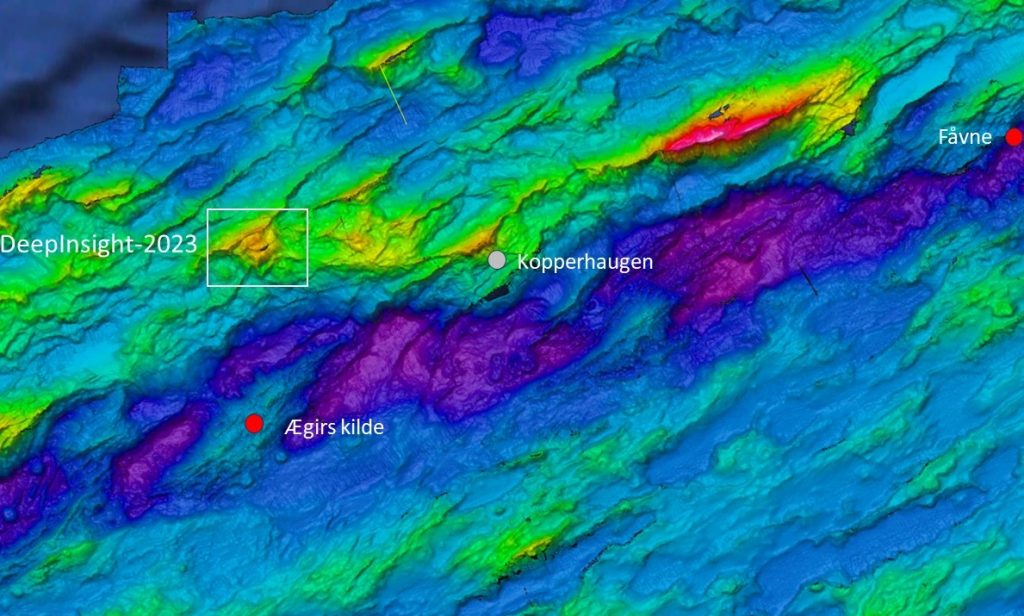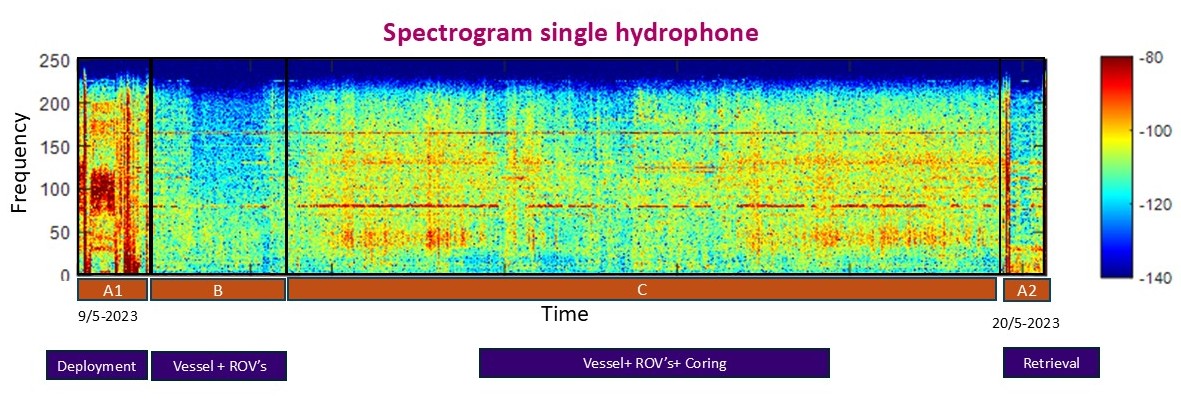Significant efforts are being made to enhance our understanding of deep-sea environments and ecosystems. At the same time, advancements in technology are underway to improve future exploration and exploitation operations, ensuring minimal disturbance to areas of interest.
One concern related to seafloor activities is the creation of plumes—underwater sediment clouds. However, less attention has been given to the issue of noise.
Monitoring and minimizing sound during deep-ocean operations is essential due to their potential impacts on marine life, ecosystem health, and regulatory compliance.
During the DeepInsight expedition at Mohn’s Ridge in 2023, a group of academic and industrial partners involved in the EMINENT project conducted various activities, including data collection and technology testing.

Svein Arne Frivik, Technology Advisor at Shearwater, will present some preliminary results from a study on noise generation and monitoring at the Deep Sea Minerals 2025 conference in Bergen in April.
The researchers deployed 19 seabed seismic nodes equipped with hydrophones across the test site, known as Deep Insight Hill, to measure sound pressure levels during four operational stages: deployment, vessel and ROV (remotely operated vehicle) operations, vessel and ROV operations with coring, and recovery.
One of the key findings was that the highest noise levels occurred during the deployment and recovery stages, primarily due to equipment handling. Additionally, drilling operations produced noise levels approximately 10 dB higher than those during vessel and ROV activity alone.
It was also noted that nodes positioned near the coring machinery recorded higher sound pressure levels.
The researchers emphasize the need for input from biologists to help interpret the data with respect to its impact on marine life, and suggest using the data for noise modelling in future exploration campaigns.
During the 2023 expedition, only low-frequency sounds (0 – 250 Hz) were recorded, and the researchers recommend the use of high-bandwidth hydrophones for more comprehensive monitoring in future operations.

The main objective of the EMINENT project is to enhance our understanding of the deep sea, including its geology, environment, and mineral resources. Additionally, the project aims to develop and test relevant technologies. Several presentations at the conference will showcase findings and new insights from this initiative.
(As a side note, during the DeepInsight expedition’s testing of a new concept for deep-sea core drilling, the partners accidentally drilled straight into an unknown sulfide deposit).
Deep Sea Minerals 2025 will take place in Bergen from 1-3 April. The program and registration page can be found on the conference website.

![var rnd = window.rnd || Math.floor(Math.random()*10e6);
var pid980600 = window.pid980600 || rnd;
var plc980600 = window.plc980600 || 0;
var abkw = window.abkw || '';
var absrc = 'https://servedbyadbutler.com/adserve/;ID=188736;size=0x0;setID=980600;type=js;sw='+screen.width+';sh='+screen.height+';spr='+window.devicePixelRatio+';kw='+abkw+';pid='+pid980600+';place='+(plc980600++)+';rnd='+rnd+'';
var _absrc = absrc.split("type=js"); absrc = _absrc[0] + 'type=js;referrer=' + encodeURIComponent(document.location.href) + _absrc[1];
document.write('');
Monitoring noise during deep-sea exploration](https://geo365.no/wp-content/uploads/2025/03/1000_Frivik_node.jpg)